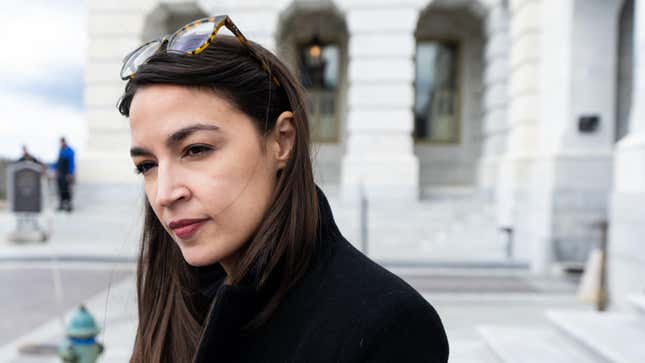AOC Opens Up To GQ Magazine About Her Sexual Assault
Ocasio-Cortez spoke to the men's mag about misogyny, trauma, and her future in politics.
Politics

In a new cover story interview for GQ Magazine, two-term Congresswoman Alexandria Ocasio-Cortez (D-N.Y.) shared reflections on the sexual assault she says took place in her early 20s. The politician had kept the experience rather private until shortly after Donald Trump supporters stormed the U.S. Capitol on January 6, 2021—an incident through which she feared she might be raped.
“I could not talk about that day without disclosing [the assault], because it was such a central part of my experience,” she told GQ. “I felt like I could not really adequately communicate what that experience was without giving people the context of what I had lived through and what was being echoed, because so much of it was about resonance and fear of a thing that was not theoretical but a fear of a thing that I had experienced.”
Ocasio-Cortez says she was assaulted in her early 20s by a person she was dating but not sexually active with. When she confronted him about forcing himself upon her, he denied the incident. “The insistence on a denial of what happened that very, very clearly happened is also a through line with other women’s experiences, friends that I’ve had, or just a pretending that what very clearly happened, did not happen,” she said. “That, too, is also an assertion of power, and so this assertion of power and dominance over others is not limited to the actual physical fact, but how things are treated afterwards.”
-

-

-

-

-

-

-

-

-

-

-

-

-

-

-

-

-

-

-

-

-

-

-

-

-

-

-

-

-

-

-

-

-

-

-

-

-

-

-

-








































